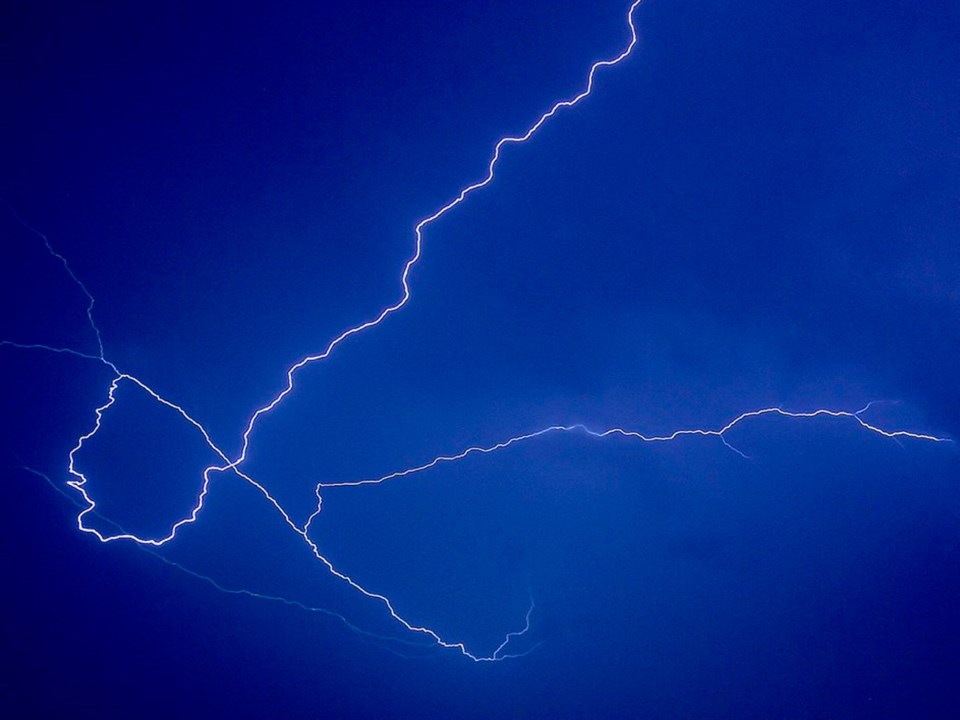VANCOUVER — B.C. set a record for lightning strikes, but enjoyed the quietest fire season in years thanks to timely rainfall.
Environment and Climate Change Canada has recorded 422,000 lightning strikes this year in the province, far above the 18-year average of 266,000. July alone saw 264,344 lightning strikes, said meteorologist Matt MacDonald.
“Leading into the summer people were on edge for another record wildfire season, given how dry it was this spring,” he said.
In June, July and August — the meteorological summer — total rainfall was actually below normal in many parts of B.C. and it could have gone terribly wrong for our parched forests. But instead of long, warm spells punctuated by dry lightning storms, electrical activity was accompanied by rain.
“The saving grace was all the rain that we got in July, when much of the province was wetter than normal with 120 to 200 per cent higher-than-normal rainfall,” he said. “I think we dodged a bullet there.”
Just 21,165 hectares were lost to wildfires this year, about 92 per cent lower than the 10-year average. By contrast, 1,354,284 hectares burned last summer.
Almost 1,500 fires were attributed to lightning strikes last year, compared with 434 this year.
The province has spent $125 million fighting fires this season. More than $600 million was spent in each of the past two summers, according to the B.C. Wildfire Service.
There are currently no fires of note burning in the province.
“It’s very, very slow right now, and has been for the whole season, in fact,” said spokeswoman Erika Berg. “Our new [fire] starts are inconsequential.”
Last summer, firefighters were be brought to B.C. from other provinces and from abroad to deal with the sheer volume of wildfires. This year, the situation has been reversed.
“We’ve sent some personnel to Alberta, where they were quite busy, and also the Yukon Territory and Alaska,” she said. “Last season, we needed assistance, but this year we were able to return the favour.”



